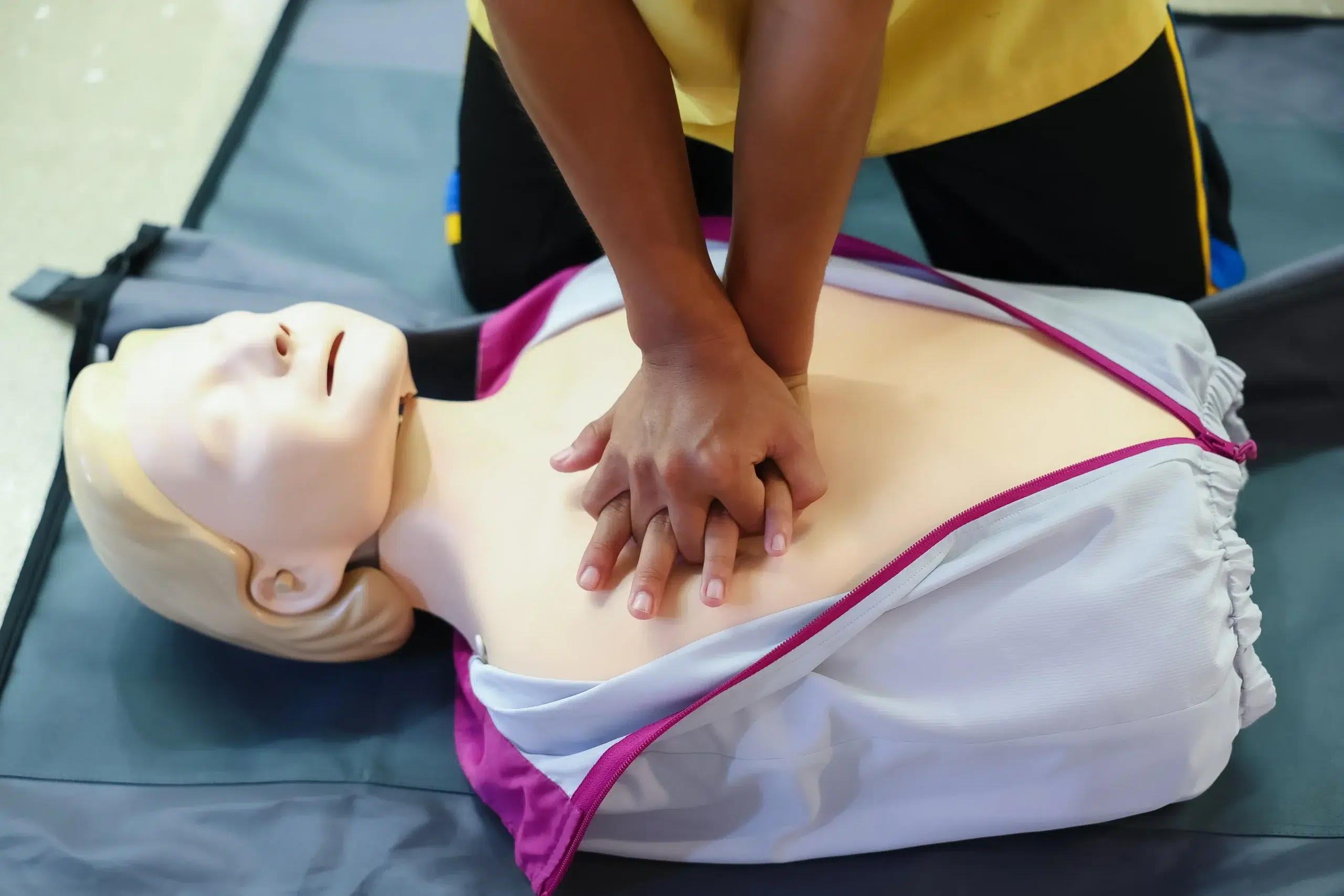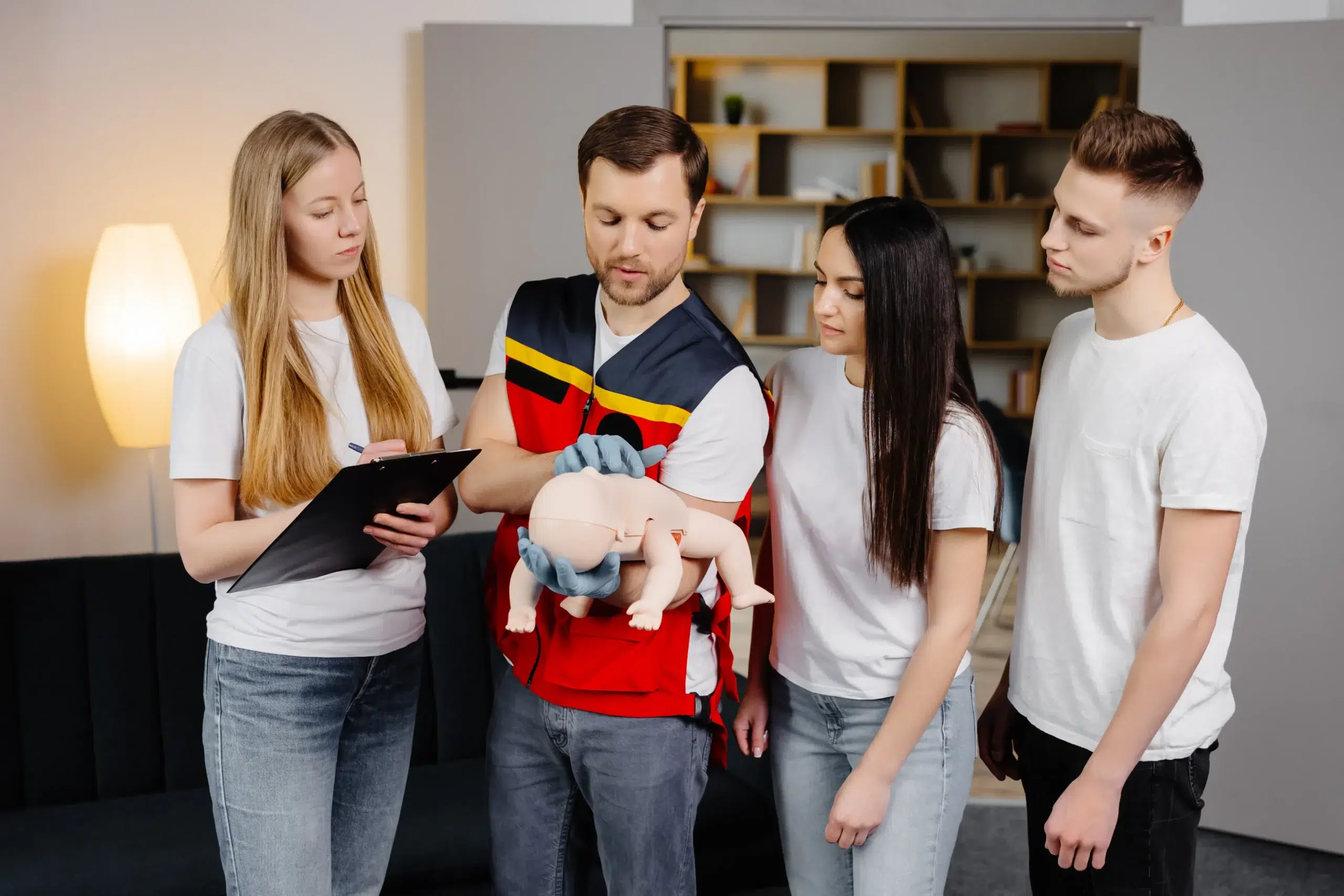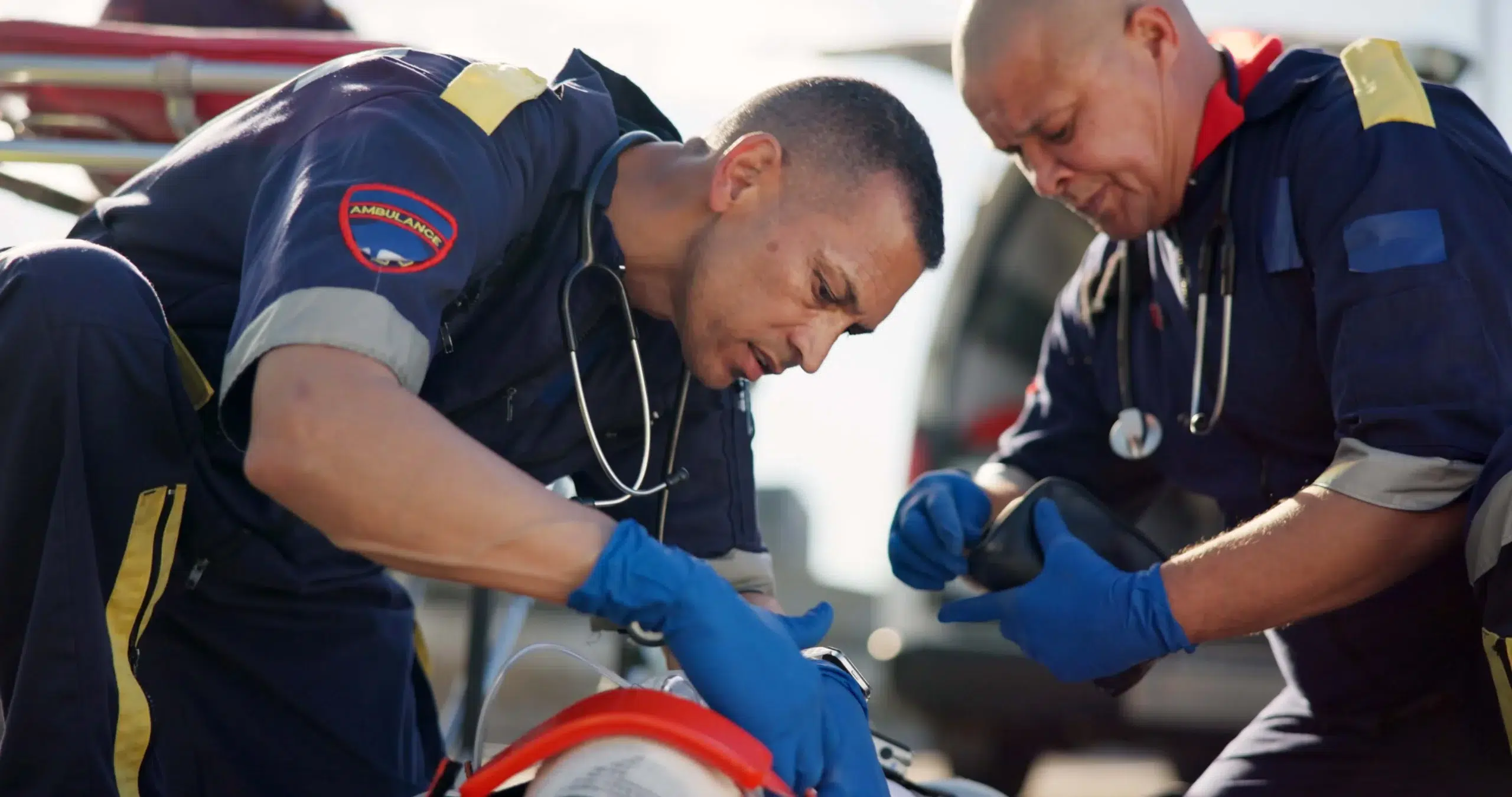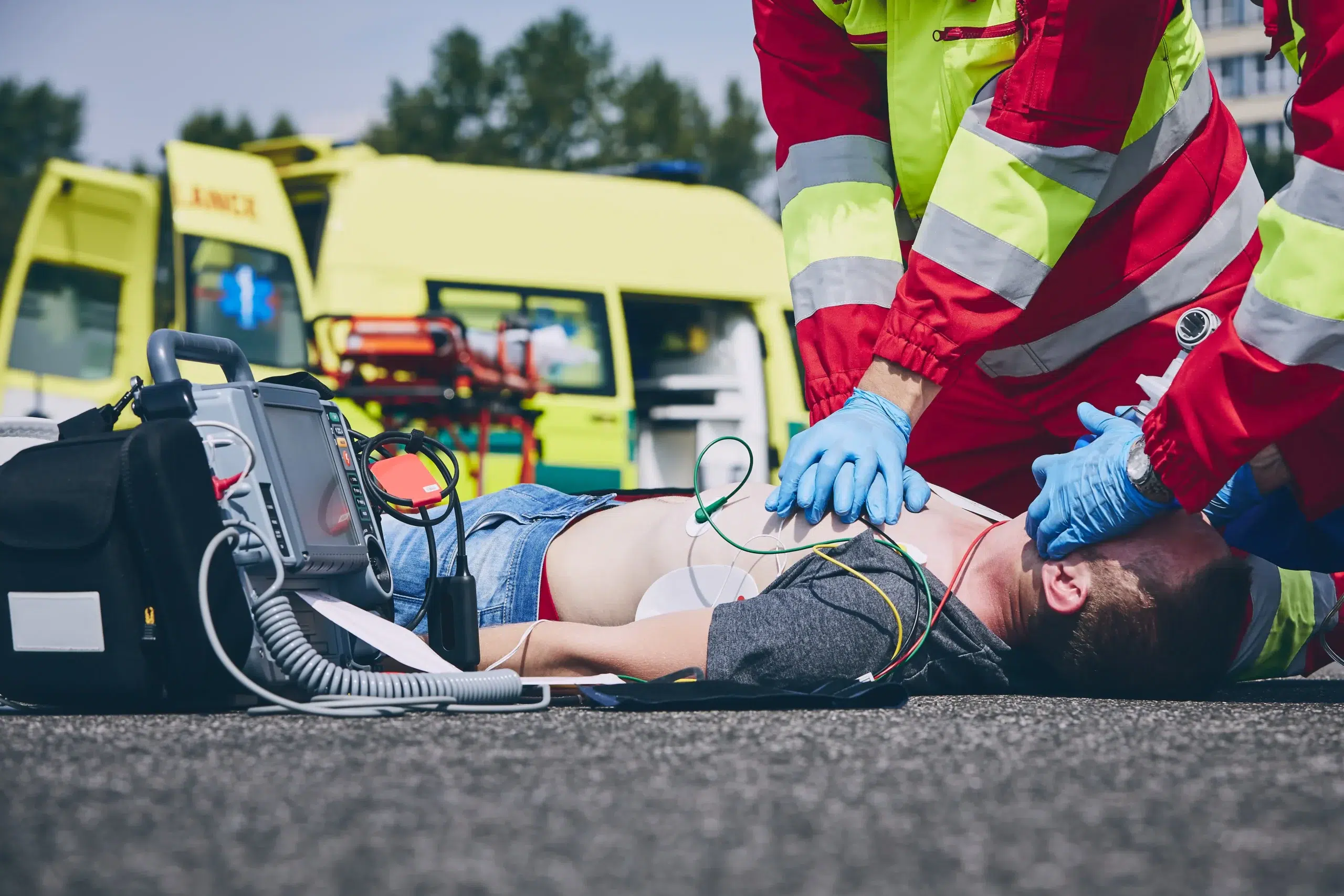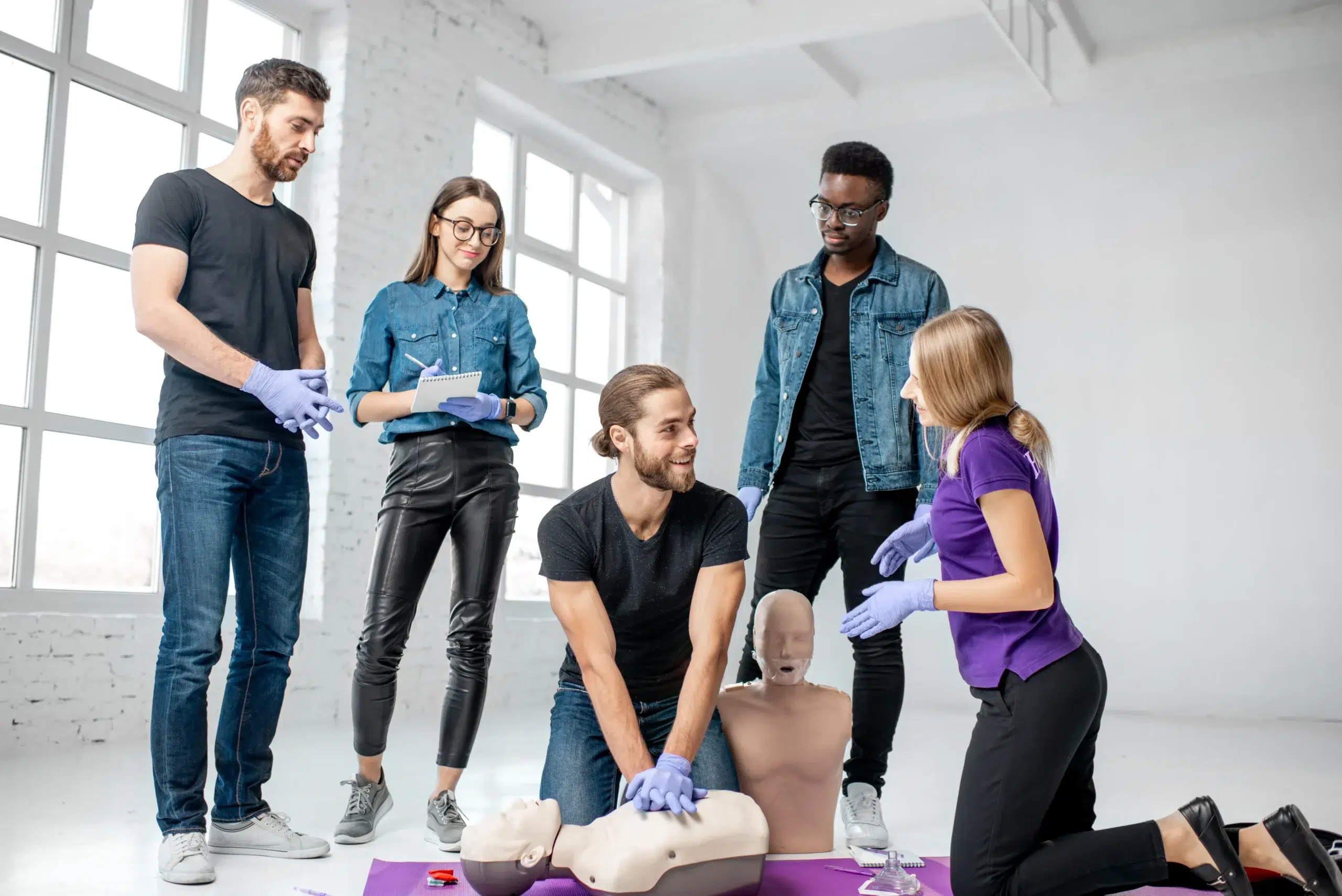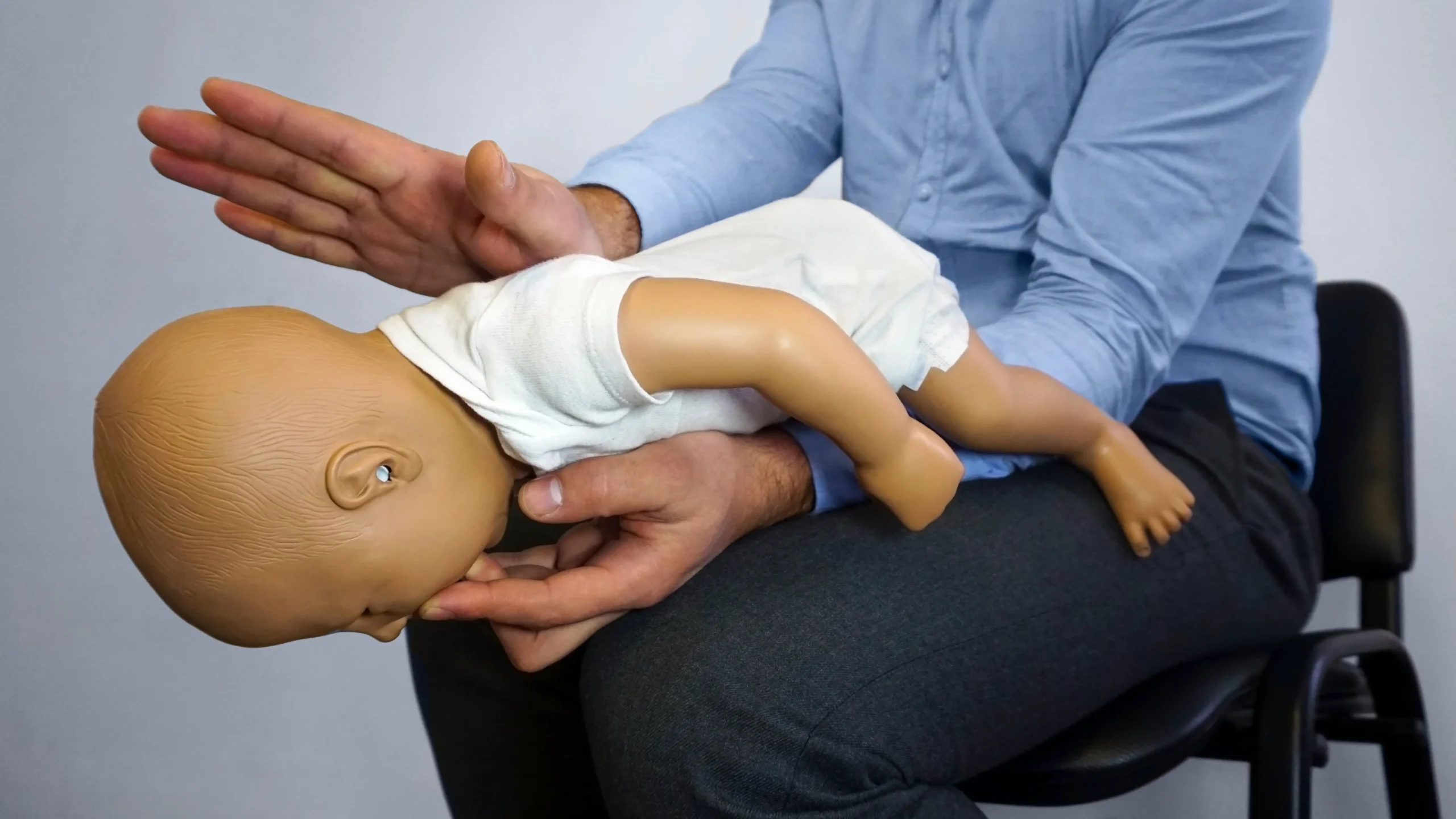First-aid courses in Newark provide essential training for anyone looking to develop life-saving skills. This guide covers everything you need to know about first-aid training in Newark, from the basics of CPR and AED use to specialized courses for healthcare professionals. We’ll explore the benefits of first-aid training, the different types of courses available, and what to expect during a typical training session. We’ll also discuss certification and renewal procedures, instructor qualifications, and cost considerations. Furthermore, we’ll address common barriers to training, such as time constraints and building confidence, and offer practical solutions. Whether you’re a parent, teacher, healthcare worker, or simply someone who wants to be prepared, this post will help you find the right first-aid course in Newark.
Key Takeaways
- First aid skills empower you to confidently handle emergencies: From everyday mishaps to serious incidents, knowing first aid allows you to respond effectively and provide crucial support until professional help arrives.
- Choose a first-aid course that fits your lifestyle: Consider factors like course content, schedule, and provider reputation to find the best fit for your individual needs. Look for hands-on training and certified instructors.
- Maintain your skills through regular renewal: First-aid knowledge and techniques evolve. Renewing your certification ensures you stay current and prepared to provide the most effective care in any situation.
Why First Aid Matters
Beyond Certification
Learning first aid is more than just a certification—it’s a practical life skill, like knowing how to swim or change a tire. It equips you to handle everyday situations and emergencies, giving you the confidence to act when it matters most. From minor injuries to more serious incidents, first-aid knowledge helps you stay calm and respond effectively. This confidence benefits not only you but also those around you, as you become a source of support in unexpected events. First-aid training is a great foundation for anyone interested in healthcare, opening doors to future career opportunities. It also encourages a sense of community responsibility, preparing you to assist others in need. Whether at home, work, or out and about, first-aid skills can truly make a difference. For healthcare professionals, first aid is fundamental to patient care. It’s the first line of defense in medical settings, enabling quick, effective responses to various situations. Research shows that improved first-aid knowledge among non-healthcare professionals increases their willingness to help during emergencies. For businesses, first-aid training creates a safer work environment and demonstrates a commitment to employee well-being, reducing the risk of serious incidents. A well-trained workforce is better equipped to handle workplace accidents, minimizing their impact and fostering a culture of safety.
First-Aid Courses in Newark
First-aid training empowers you to respond effectively to emergencies, providing crucial care until professional help arrives. Whether you’re a parent, a teacher, a healthcare professional, or simply someone who wants to be prepared, first-aid training offers valuable skills that can make a real difference. Newark offers a range of first-aid courses to meet diverse needs. Let’s explore some of the options available:
Basic First Aid
Basic first-aid courses cover essential life-saving skills, equipping you to handle common injuries and medical emergencies. You’ll learn how to manage cuts, burns, sprains, fractures, and other injuries. These courses also often incorporate training on how to recognize and respond to allergic reactions, choking, and other medical emergencies. Safety Training Seminars offers a comprehensive first-aid and CPR class in Newark, providing a solid foundation in these essential skills.
CPR and AED Training
CPR (cardiopulmonary resuscitation) and AED (automated external defibrillator) training are often integrated into first-aid courses, providing comprehensive emergency preparedness. CPR teaches you how to perform chest compressions and rescue breaths to maintain blood circulation and oxygenation in someone who has stopped breathing or has no pulse. AED training teaches you how to use an AED, a portable device that can deliver an electric shock to restore a normal heart rhythm in cases of sudden cardiac arrest. These skills are invaluable in life-threatening situations and can significantly improve the chances of survival. You can find CPR and first-aid classes in Newark through various providers.
Specialized Courses for Healthcare Professionals
Healthcare professionals, including doctors, nurses, and allied health workers, often require specialized first-aid training to meet the demands of their clinical settings. These advanced courses cover a broader range of medical emergencies and procedures, providing healthcare providers with the skills and knowledge to handle complex situations effectively. First-aid training plays a crucial role in patient outcomes and is a fundamental aspect of healthcare practice.
Pediatric First Aid
Pediatric first-aid courses focus on the specific needs of infants and children. These courses teach caregivers, parents, and childcare providers how to respond to common childhood injuries and illnesses, such as choking, burns, and allergic reactions. They also cover age-appropriate CPR techniques and other essential skills for caring for young children in emergencies. Resources like the Newark Public Library may offer pediatric first-aid courses, providing valuable training for those who care for children. You can also check with local community centers and hospitals for pediatric first-aid training options.
What to Expect in a Newark First-Aid Course
Knowing what to expect can help you feel prepared and confident on the day of your first-aid training. Here’s a glimpse into a typical first-aid course in Newark:
Course Structure and Duration
First-aid courses in Newark are generally compact and efficient, often wrapping up in about three hours. In this short time, you’ll cover a lot of ground, from the fundamentals of chest compressions and rescue breaths to using an AED and handling choking emergencies. The curriculum also includes recognizing the signs of stroke and heart attack, managing allergic reactions, and controlling bleeding—essential skills for any emergency. Learn more about what’s included in our comprehensive first-aid training.
Hands-on Practice
Effective first aid requires more than just book knowledge. That’s why Newark first-aid courses prioritize hands-on learning. Experienced, certified instructors will guide you through demonstrations and provide opportunities for practice. This hands-on approach is key to developing the muscle memory and confidence you’ll need to respond effectively in a real-life crisis. You’ll need to demonstrate these skills to your instructor before receiving your certification. For more information on hands-on training, visit the American Red Cross website.
Certification Process
One of the best parts? You’ll receive your American Heart Association (AHA) Basic Life Support (BLS) CPR and First Aid certification cards the same day you complete the course. Remember that these certifications are valid for two years. Mark your calendar and plan to renew your certification to maintain your skills and stay current with the latest first-aid practices. Register today and get certified.
Choosing the Right First-Aid Course
Finding the perfect first-aid course involves understanding your needs, considering your schedule, and vetting potential providers. It may seem simple, but taking the time to evaluate these factors ensures you get the most out of your training.
Define Your Needs and Goals
Before you start searching for courses, ask yourself why you want first-aid training. Are you required to get certified for your job, or are you looking to gain skills for personal use? If your workplace mandates certification, contact your employer or HR department to determine the specific requirements. Some professions, like healthcare providers, need more advanced training than general first aid. Knowing the level of certification you need—whether it’s basic first aid, CPR/AED, or something more specialized—will narrow your search. Check out our CPR and First Aid Certification Courses to see what we offer. We also provide information on RQI classes for healthcare professionals seeking to maintain their resuscitation skills.
Find a Course That Fits Your Schedule
Life gets busy, so finding a course that meshes with your schedule is essential. Many providers offer various class formats, including in-person, online, and blended learning (a mix of online and in-person sessions). Think about what works best for you. Do you prefer the focused environment of a classroom or the flexibility of online learning? Consider factors like location, weekend availability, and evening classes. Our BLS courses in Newark offer a range of scheduling options.
Evaluate Course Providers
Not all first-aid courses are created equal. The quality of instruction significantly impacts how much you learn and how confident you feel using your skills. Look for providers with experienced, certified instructors who create a positive learning environment. A good instructor not only teaches the material but also fosters engagement and encourages questions. Check if the provider is affiliated with a reputable organization like the American Heart Association. Also, consider factors like class size—smaller classes often allow for more personalized attention. Our low price guarantee ensures you receive high-quality training at a competitive price. We also offer discounted group classes for businesses and organizations.
First-Aid Course Costs in Newark
Knowing the price range for first-aid training in Newark helps you budget and find a course that fits your needs. This section breaks down typical costs, including course fees, additional expenses, and potential discounts.
Course Pricing
First-aid course fees in Newark vary depending on the course type and provider. Combined courses, like those including CPR, AED, and First Aid training, often cost between $80 and $100. For a comprehensive BLS, CPR, AED, and First Aid certification, you can find options for around $90 at Safety Training Seminars. A stand-alone CPR/AED course designed for healthcare providers might be slightly less, around $70. Check our BLS courses in Newark page for current pricing and schedules.
Additional Fees
While the advertised course fee usually covers the primary instruction and materials, be mindful of potential extra costs. Some locations may add fees for venue rental or equipment. These are less common with established training centers like ours and more likely with community-based courses. Always confirm the total cost before registering to avoid surprises. Our low price guarantee ensures transparency and helps you find the most affordable option.
Discounts
Many providers offer discounts, especially for groups. If you’re training with others, ask about group discounts. This can significantly reduce costs for businesses training their employees. Safety Training Seminars offers discounted group training, making it a smart choice for organizations in Newark, Fremont, and San Jose. Student discounts may also be available, so it’s always worth asking!
Certification and Renewal
How Long is Certification Valid?
Once you complete your first-aid training, you’ll receive a certification valid for two years. This timeframe aligns with requirements from organizations like OSHA, ensuring your skills and knowledge are current for effective emergency response. Keeping your certification up-to-date demonstrates your commitment to providing the best possible care. At Safety Training Seminars, we make it easy to stay current with our convenient renewal courses.
Renew Your Certification
Even if your certification lapses, providing assistance during emergencies is still crucial. Resources like the CDC encourage taking action even if your certification isn’t current. However, renewing your first-aid certification every two years is essential to stay updated on the latest guidelines and techniques. This ensures you’re prepared and confident in any emergency situation. Check out our convenient BLS courses in Newark to easily renew your certification. We offer a variety of courses to fit your schedule and needs. You can also explore our CPR and first-aid certification courses for comprehensive training options.
Instructor Qualifications
Knowing your instructor’s qualifications is key to a good learning experience. It ensures you’re learning accurate information and best practices from a knowledgeable professional. Here’s what to look for:
Training and Certifications
First and foremost, your instructor should hold current certifications from a recognized organization like the American Heart Association (AHA). Safety Training Seminars is an AHA-certified training center, so our instructors meet these rigorous standards. Verify your instructor’s certifications are up-to-date and relevant to the course they’re teaching, whether it’s basic first aid, CPR, or a specialized course like ACLS. This ensures they’re teaching the most current, evidence-based techniques.
Experience
Beyond certifications, real-world experience makes a difference. Instructors who’ve used their first-aid skills in practical settings bring valuable insights to the classroom. Ask about an instructor’s background – have they worked as healthcare providers or in other roles requiring first-aid knowledge? This practical experience can enrich your learning by providing real-life examples and context. A skilled instructor also knows how to create a positive learning environment, encouraging questions and making everyone feel comfortable practicing these essential skills.
Accessibility
Accessibility is crucial when choosing a first-aid course. This includes clear communication, inclusive teaching practices, and a willingness to accommodate diverse learning needs. A good instructor understands that everyone learns differently and adapts their teaching style accordingly. They should be approachable and create a safe space for questions, ensuring everyone feels comfortable participating. Consider factors like class size and the instructor’s communication style when evaluating accessibility. At Safety Training Seminars, we prioritize accessibility with our low price guarantee and extended customer service hours, making it easier for everyone to access these vital skills.
Where to Find First-Aid Courses
Finding the right first-aid course in Newark means understanding your needs and researching different providers. Here’s a breakdown of where you can typically find training:
Safety Training Seminars
Safety Training Seminars, a woman-owned American Heart Association Training Center, offers various CPR and first-aid certification courses in Newark. They hold courses daily to accommodate busy schedules. They also offer discounted group classes and a low price guarantee. Visit their website for the BLS course schedule in Newark.
American Red Cross
The American Red Cross provides first-aid and CPR/AED training in several learning formats, including in-person, online, and blended learning. You can find courses throughout New Jersey. For training specifically in Newark, look into local providers like the Newark Beth Israel Medical Center CPR Training Center.
St. John Ambulance
St. John Ambulance offers first-aid training geared toward various workplace settings. Their courses give employees, managers, and bystanders practical skills for emergencies. Visit their website for course availability and details.
Hospitals and Medical Centers
Many hospitals and medical centers offer first-aid courses to their staff and the public. These courses often provide comprehensive, hands-on training applicable in various healthcare settings. Contact local hospitals in Newark to ask about their courses.
Community Colleges
Community colleges often offer affordable first-aid and CPR training to the community. These courses provide essential life-saving skills and certifications. Check with community colleges in the Newark area for their course schedules and registration information.
Prepare for Your First-Aid Course
Getting ready for your first-aid course doesn’t have to be complicated. A little preparation helps ensure a smooth and productive learning experience. Here’s what you need to know:
What to Bring
First things first, complete your registration before the course date. While you don’t need to bring much, a notebook and pen are helpful for jotting down notes and questions. Some courses provide materials, but having your own lets you personalize your notes and review them later. A water bottle is also a good idea, especially during hands-on practice.
Study Materials
Many first-aid courses, including those covering CPR and First Aid, offer study materials beforehand. Take advantage of these resources. Familiarizing yourself with basic concepts before class helps you absorb information more effectively during instruction. This preparation can make the difference between simply learning the steps and truly understanding first-aid principles. For example, understanding RQI can significantly improve your preparedness for CPR training.
Dress Code
While most first-aid courses don’t have a strict dress code, comfortable clothing is key. You’ll likely participate in hands-on activities, including practicing CPR and bandaging. Choose clothing that allows a full range of motion. Avoid restrictive clothing or anything that makes it difficult to kneel, bend, or move your arms. Comfortable shoes are also recommended. You’ll want to be comfortable and able to move freely to get the most out of your training. Check out our low price guarantee to make sure you’re getting the best value for your first-aid training. We also offer discounts for group classes, so be sure to ask if you’re signing up with colleagues or friends.
Overcome Barriers to Training
Let’s be honest, finding the time for training can be tough. But think of first-aid training as an investment—in yourself, your loved ones, and your community. It’s a skill that can make a real difference.
Time Commitment
We get it, life is busy. Between work, family, and everything else, carving out time for a first-aid course can feel impossible. But employers also have a responsibility to ensure the safety of their staff. Many companies offer on-site training, making it easier for employees to participate. If your workplace doesn’t offer this, explore courses offered on evenings or weekends. Safety Training Seminars offers daily certification courses and even discounted group classes to accommodate busy schedules. Even a basic first-aid course can equip you with life-saving skills.
Build Confidence
It’s normal to feel hesitant about applying first-aid skills in a real emergency. What if you do something wrong? This is where practice comes in. High-quality first-aid courses, like those offered at Safety Training Seminars, include hands-on practice sessions that build your confidence and muscle memory. The more you practice, the more comfortable you’ll become. Don’t be afraid to ask your instructor questions – they’re there to support you. Overcoming that initial hesitation is often the biggest hurdle. Studies show that a lack of confidence is a common concern that can be addressed through hands-on training.
Apply Your Skills
Learning first aid is one thing, but using it effectively in a real-life emergency requires ongoing reinforcement. Consider refreshing your skills periodically by volunteering at a local event or simply talking through scenarios with friends or family. Continued research emphasizes the importance of ongoing training and skill application to ensure long-term effectiveness. Remember, first aid is a perishable skill – use it or lose it!
Related Articles
- Find First-Aid Classes Near Me: Your Certification Guide – Newark CPR Classes
- Workplace CPR and First-Aid Training Saves Lives
- CPR Classes in Newark: Your Complete Guide – Newark CPR Classes
- Pediatric CPR & First Aid Classes in Newark – Newark CPR Classes
- CPR Renewal in Newark: Your Complete Guide – Newark CPR Classes
Frequently Asked Questions
Why is first-aid training important if I’m not a healthcare professional?
First-aid knowledge empowers you to handle everyday injuries and potentially life-threatening situations. It gives you the confidence to act quickly and effectively in emergencies, providing crucial care until professional help arrives. This can significantly improve outcomes, especially in situations like choking, allergic reactions, or sudden cardiac arrest. It’s a valuable life skill that benefits not only you but also your family, friends, and community.
What should I expect during a first-aid course?
Most first-aid courses are designed to be concise and practical, often completed in a single day. You can expect a combination of instruction, demonstrations, and hands-on practice. Instructors guide you through essential skills like CPR, using an AED, controlling bleeding, and managing various injuries. The goal is to build your confidence and competence in applying these skills in real-life scenarios.
How much do first-aid courses typically cost, and are there any discounts available?
The cost of first-aid training varies depending on the provider and the type of course. Combined CPR and first-aid courses generally range from $80 to $100. Many providers offer discounts for groups, students, or organizations. It’s always a good idea to inquire about potential discounts when registering.
How long is first-aid certification valid, and how do I renew it?
Most first-aid certifications, including those for CPR and AED, are valid for two years. Renewal courses are readily available to keep your skills current and maintain your certification. Staying up-to-date with the latest guidelines and techniques ensures you’re prepared to respond effectively in any emergency.
What qualifications should I look for in a first-aid instructor?
A qualified first-aid instructor should hold current certifications from a recognized organization like the American Heart Association (AHA). Look for instructors with practical experience using their first-aid skills, as this adds valuable real-world context to their teaching. A good instructor also creates a supportive and engaging learning environment, encouraging questions and ensuring everyone feels comfortable practicing.
